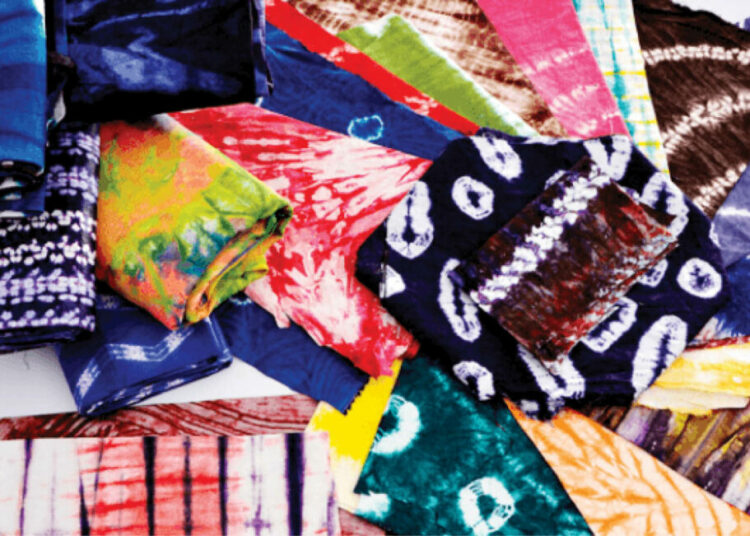With growing demand for indigenous fabrics and a global shift towards sustainable fashion, Adire cloth business is emerging as a lucrative venture.
The Nigerian fashion industry is valued at approximately $4.7 billion, and Adire textiles are increasingly recognised as a key contributor.
The economics of Adire are compelling. With startup costs as low as N50,000 to N100,000, entrepreneurs can begin small-scale production from home.
A single piece of Adire fabric, depending on quality and design, can sell for N5,000 to N25,000 locally and much more abroad.
Rooted in Yoruba tradition, Adire which means “tie and dye” emanates from a local craft into a booming industry with national and international appeal.
Speaking with a visual artist and textile designer based in Abeokuta, Ogun State, Ayodeji Olatubosun, who has been involved in the Adire and other African textiles business for nearly 19 years. emphasised the importance of understanding one’s target audience, noting that the business is broad and depends on what one wants to achieve.
Olatubosun whose main focus is in processing and production of Adire garments as a metaphorical work of art, said the focus will determine the type of product to pursue, whether ready-made garments or yardage, depending on the purpose and the intended customers. Thus, all these variables are crucial.
Olatubosun adds that starting by selling fabric only is an acceptable entry point. There are different ways to approach the business, such as buying from major markets to resell or producing one’s own designs and colours, both of which are viable.
However, creating your own designs is generally more effective, although this depends on the capital available. Having unique designs and colours presents a definite advantage, though this varies in practice.
Regarding accessibility, buying Adire in Abeokuta is beneficial because it serves as a depot where many indigenous artisans produce the craft. Therefore, sourcing Adire there is far cheaper and easier than elsewhere.
Business Capital
On capital requirements, he says even a small amount like N10,000 can be invested, while those with N100 million can commit much more.
The scale of investment depends entirely on what one wants to sell, to whom, and how. The price of pieces can be as low as N15,000 each, making it accessible at various levels of investment.
In terms of profitability, Olatubosun observes that people are succeeding in this business, pointing out that Adire is a globally acclaimed textile used widely. Hence, its lucrativeness depends on the intended application.
Finally, he advises newcomers to truly understand Adire, including its details and quality. Even those beginning without deep knowledge will gradually learn. He stresses that recognising quality depends on one’s budget, design preferences, and target market. Olatubosun concludes that there are no significant challenges beyond knowing what you want to do within the business, describing it as straightforward.





